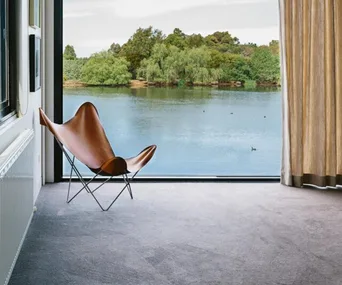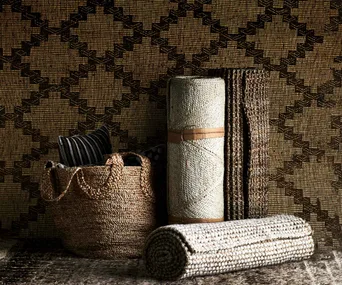One of the obvious benefits of carpet over timber flooring, tiles or concrete is the warmth it brings to any room. However, soft carpet also provides a seemingly joint-free flooring finish that’s visually pleasing as well as being practical to maintain and an added layer of textural interest to a room. It can work with any interior scheme to add colour and texture to a room.
If you’re considering installing carpet, that’s the easy part – it can be a quick an effective flooring option if you’re short on time or want to save on labour costs. However, choosing the carpet is a harder decision. Some of the most important things to consider are whether it’s easy to maintain, as well as its practicality and functionality.
It all comes down to the carpet style and material. Various materials offer different levels of softness and wearability, and each is priced to suit various budgets. Interior designer James Treble takes us through myriad carpeting options to help you choose the right style for you and your home.
Material choices
Polyester
The least expensive option, polyester is a synthetic fibre that can have a slightly plastic feel that is also harder underfoot. However, it is hard-wearing, making it popular for rented properties.
Nylon
Another synthetic product, nylon tends to be far softer and more durable than polyester. It is mid-range in terms of price, retains its colour well and is quite stain-resistant.
New ranges can be blended with corn syrup, making them as soft as wool. Solution-dyed nylon, one of my favourites, is super stain-resistant and is a practical, well-priced, all-purpose carpet.
Wool
A popular choice that wears well and is soft underfoot, wool is more susceptible to staining and requires more care and maintenance than synthetic materials.
One issue you’ll need to consider is the fibre continuing to lift once it’s laid for between six to 12 months. You may be vacuuming them up for some time.
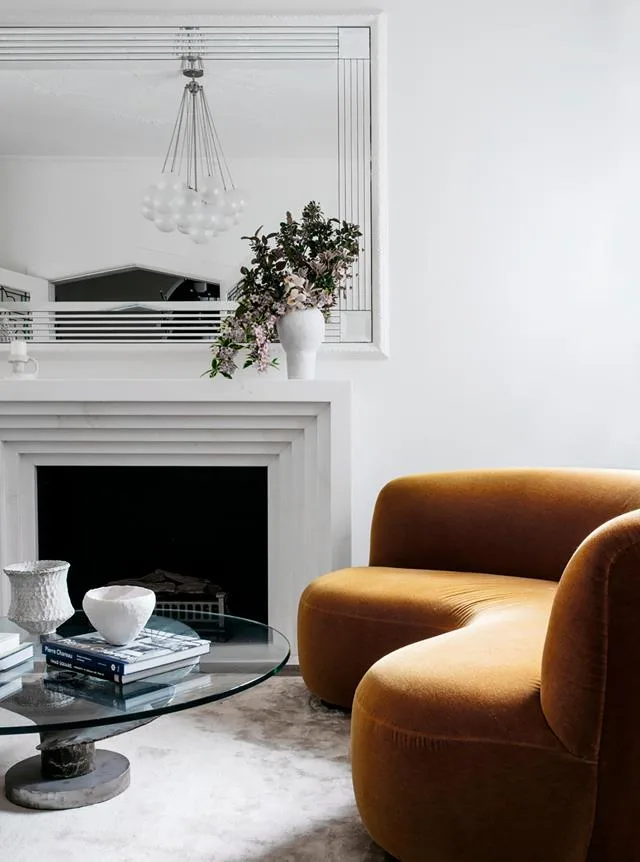
Carpet in the living and dining zones adds warmth to the space and under your feet, too. Photo: Felix Forest | Styling: Swee Lim | Story: Belle
Finish it off
Carpets come in a variety of finishes suitable for different traffic levels and offer completely different looks.
Plush pile
Popular as it’s soft underfoot, however it can flatten and show marks from foot traffic and vacuuming, which can be distracting in open-plan rooms.
Twist pile
Similar to plush in that it’s easy to lay and feels soft but it’s harder to flatten, and marks are less likely to show as the pile is twisted to sit upwards.
Loop pile
Because the pile sits upwards like an upside-down U, it’s less likely to flatten and provides a more uniform look. A popular loop-pile carpet is sisal, with its uniform lines of looped fibres.
Cut and loop
A blend of two styles forming various patterns and designs. Choose a nondirectional cut-and-loop carpet to a narrow room feel more square.
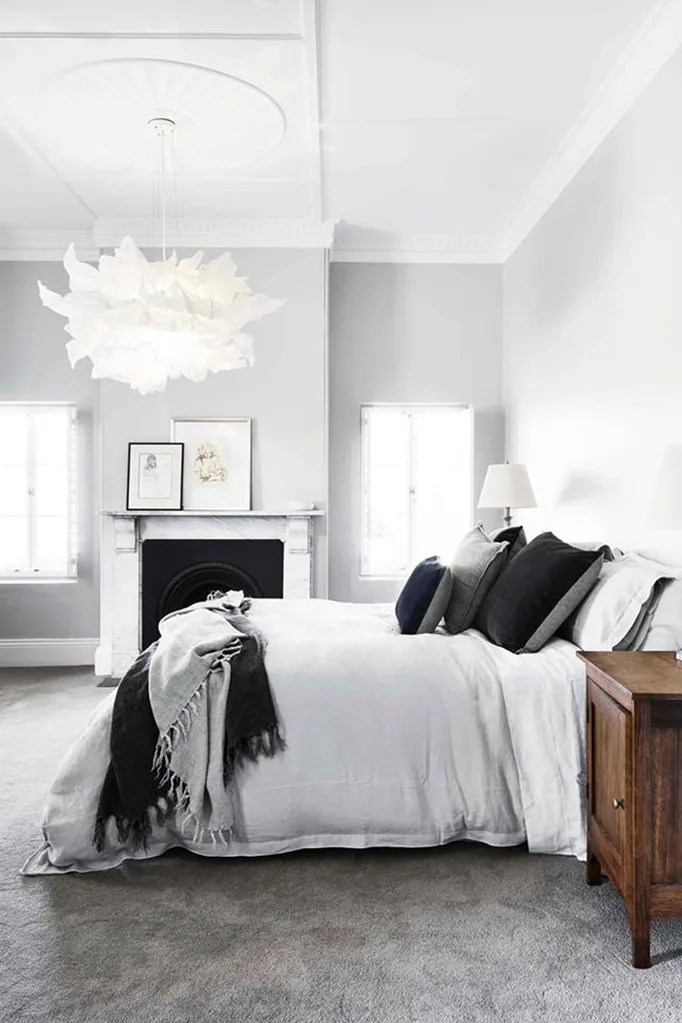
Photo: Jenah Piwanski | Styling: Fête Press | Story: Belle
Rug up
If you’re renting and can’t change up your floors, one of the most effective ways to transform a space, and address insulation issues, is with a floor rug. They’re soft underfoot, add texture to your interiors and have acoustic properties that can make rooms quieter, more inviting and cosy.
Here are some tips when going shopping for a new rug:
The size should relate directly to the room. A rug will ideally be under your feet when you’re sitting on the sofa, or when you get out of bed in the bedroom.
If you are renting, sometimes overlapped smaller rugs can work well in a larger room. The benefit is that they can easily be repositioned if you move to suit a different size space.
In terms of style, look to the colour of your artwork, cushions or your accessories when deciding which rug design and colour will work best in your space.
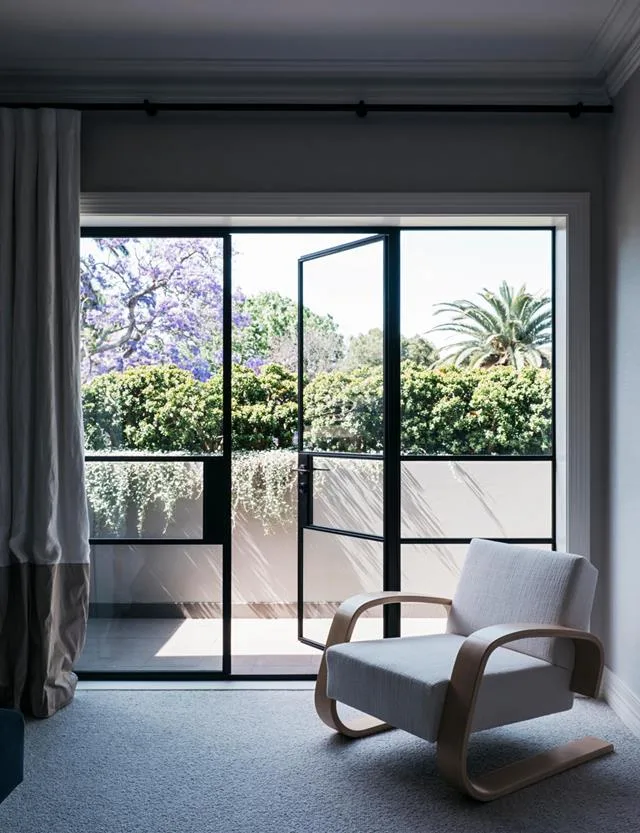
Photo: Felix Forest | Styling: Steve Cordony | Story: Belle

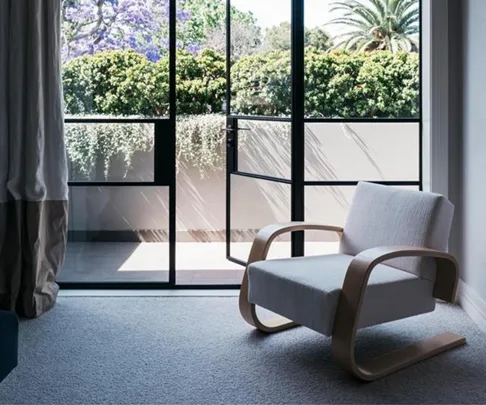 Felix Forest
Felix Forest
